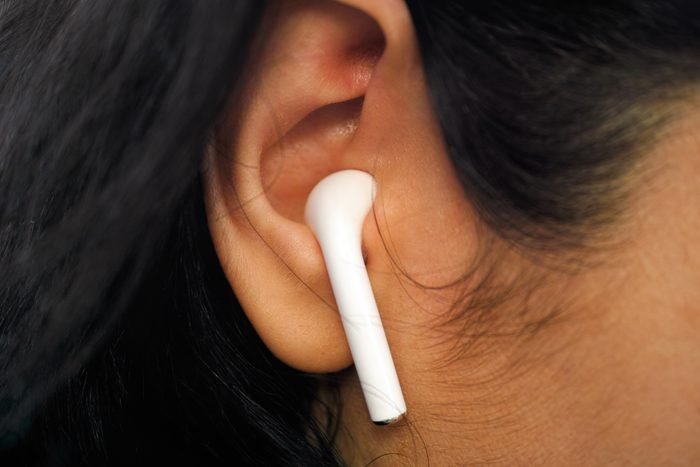Do Wireless Earbuds Harm Your Brain? A Brain Cancer Doctor Sounds Off–
How did we live before hands-free?
The following written content by Charlotte Hilton Andersen
How did we live before hands-free? If you’re an in-ear headphone devotee, medical experts offer one clever rule so you can help your brain stay healthy for the long term.

is there any truth to these claims? Are you compromising your health for the convenience of wireless headphones—and specifically, are you increasing your risk for brain cancer?
Turns out, the answer isn’t entirely clear-cut, but these are prevalent uncertainties right now. “This is a very common worry and a question that I hear often from my patients: They want to know if their phones or earbuds caused their brain cancer,” says Naveed Wagle, MD, a neuro-oncologist at Pacific Brain Tumor Center, Providence Saint John’s Health Center in Santa Monica, California. “The short answer is it’s probably not the sole cause,” Dr. Wagle says, “but we don’t have enough information yet to say for sure or to know if it’s a contributing factor.”
Despite how ubiquitous they’ve become among consumers, this is relatively new technology—when you think about it, widespread cell phone use only dates back about 20 years. And while wireless technology has existed since the late 1990s, wireless earbuds have only come on the scene in the past few years. This short timeframe means that there’s a lot scientists still just don’t know about the long-term health effects, especially for people who use them for hours every day.
For the moment, here’s what the United States Federal Communications Commission (FCC) says about wireless devices and your health:
Subscribe here
“Currently no scientific evidence establishes a causal link between wireless device use and cancer or other illnesses. Those evaluating the potential risks of using wireless devices agree that more and longer-term studies should explore whether there is a better basis for [radio frequency] safety standards than is currently used.”
The studies to date warrant a look.
The link between wireless earbuds and cancer
To start, a quick physics lesson: Wireless devices use bluetooth technology. Bluetooth allows these electronics to exchange information over short ranges, like the distance from your phone to your head.
The U.K.’s Institute of Physics explains that bluetooth emits a low amount of radiation in the form of ultrahigh frequency radio waves ranging from 2.402 gigahertz (which equates to 2.4 billion waves per second) to 2.48 gigahertz.
Worth mentioning is that wireless earbuds emit significantly less radiation than phones; in fact, a 2019 study published in Environmental Research found that bluetooth headphones emitted 10 to 400 times less radiation than smartphones. That’s a significant difference between the two.
Does that make either of these devices bad for you? While it might seem natural to hear “radiation” and think Cancer!, cancer is not an inevitable consequence of using these wireless devices. In general, most of us are exposed to low amounts of radiation daily, including from our computers and the sun.
So with all that background understanding, finally: Does the amount of radiation in wireless headphones increase your risk for cancer?
What science says about wireless devices and cancer risk
There is some scientific evidence that there may be a link between exposure to radiofrequency radiation (RFR) in the range used by wireless earbuds and cancer. A 2020 rodent study by the National Toxicology Program found evidence of an association with malignant heart tumors, and some evidence of an association with malignant tumors in the brain and adrenal glands, among rats that had been exposed to RFR.
However, several observational studies of humans have found no increase in cancerous tumors, even among participants with high cell phone use.
(Either way, it probably doesn’t hurt to know these cell phone safety tips.)
Know your personal risk factors
“A lower risk of cancer doesn’t equal no risk, and it can vary from person to person,” Dr. Wagle says. Read more from R.D.





